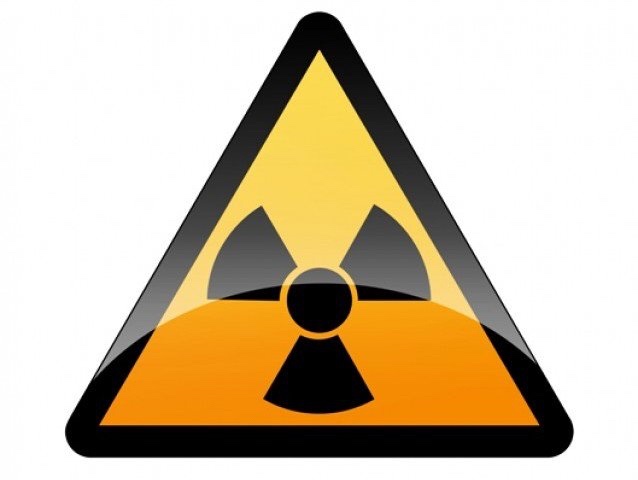
PHOTO: FILE.
Indian police seize 1kg 'uranium', arrest five
KARACHI/ ISLAMABAD: The Kolkata police claim to have arrested five men over the weekend with what they claimed was one kilogramme of uranium, according to Indian media.
The Times of India newspaper reported that the men had come to Kolkata in the state of West Bengal to try to sell the substance, which the newspaper reported as having a market value of INR30 million ($440,000). Police were quoted as saying that two packets of a “yellow-coloured substance” were seized and sent for testing.
Police said the accused had assembled at Mango Lane at Dalhousie and identified them as Javed Miandad, a resident of Nanur in Birbhum district, SK Mughal, a resident of Sutahata in East Midnapore district, Shahjahan Mondal from Baduria in North 24 Parganas district, Younis Biswas and Basant Sinha from Behrampore district.
The police also reportedly recovered forged forest department recruitment letters and mark sheets from the accused.
Praveen Tripathi, Joint Commissioner (Crime) told India’s Daily News and Analysis newspaper that the packets did not contain uranium. Other media sources identified the substance as uranium resin, or even as an ion exchange resin, which are plastic microbeads “used to clean uranium”.
Ravi Kumar Gupta, a former scientist with India’s Defence Research and Development Organisation spoke about the seizure with Indian TV channel NewsX. He differentiated between grades of uranium usable for nuclear energy or weapons production and noted that even low grade or lower radiation uranium can be used as a toxin.
To a question regarding ion exchange resin, he said that it is used in the enrichment process alongside uranium and if the recovered package was radioactive, and the contents were ion exchange resin, it would mean that the material in the bags had already been used with uranium.
He said uranium is not used in medicine. He said uranium is a highly controlled substance, but ion exchange resin is not. He said the latter has many industrial uses including water purification. The specific resin rumoured to be in the packets has an affinity for uranium
Former HEC chairman Dr Attaur Rehman, whose doctorate is in organic chemistry, said uranium is primarily used for making atomic bombs by enriching one isotope in it. “The substance contains two isotopes – U-235 and U-238. The first isotope, 235, is extracted from uranium and enriched by centrifuges to make an atomic bomb.”
He said the substance is highly contagious and should not be touched without proper precautions. “It causes cancer and a dangerous form of leukaemia, depending on how active the radiation is.”
Meanwhile, various radioactive substances are also used for cancer treatment, but officials at Nuclear Medicine, Oncology and Radiotherapy Institute in Islamabad say they don’t use uranium for cancer treatment.
To a question, officials also said Pakistan has strict and strong control systems in place so that no one can be involved in illicit trafficking here.
Another source explained that domestic uranium mining is done in a specific way and the sites are protected, adding that they are mostly in Dera Ghazi Khan.
No comments:
Post a Comment